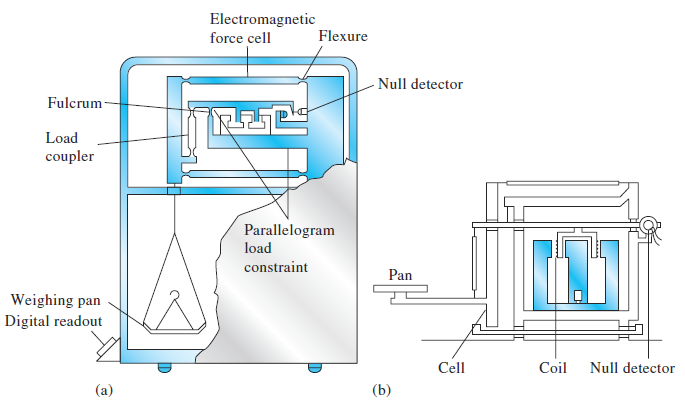

علم الكيمياء

تاريخ الكيمياء والعلماء المشاهير

التحاضير والتجارب الكيميائية

المخاطر والوقاية في الكيمياء

اخرى

مقالات متنوعة في علم الكيمياء

كيمياء عامة


الكيمياء التحليلية

مواضيع عامة في الكيمياء التحليلية

التحليل النوعي والكمي

التحليل الآلي (الطيفي)

طرق الفصل والتنقية


الكيمياء الحياتية

مواضيع عامة في الكيمياء الحياتية

الكاربوهيدرات

الاحماض الامينية والبروتينات

الانزيمات

الدهون

الاحماض النووية

الفيتامينات والمرافقات الانزيمية

الهرمونات


الكيمياء العضوية

مواضيع عامة في الكيمياء العضوية

الهايدروكاربونات

المركبات الوسطية وميكانيكيات التفاعلات العضوية

التشخيص العضوي

تجارب وتفاعلات في الكيمياء العضوية


الكيمياء الفيزيائية

مواضيع عامة في الكيمياء الفيزيائية

الكيمياء الحرارية

حركية التفاعلات الكيميائية

الكيمياء الكهربائية


الكيمياء اللاعضوية

مواضيع عامة في الكيمياء اللاعضوية

الجدول الدوري وخواص العناصر

نظريات التآصر الكيميائي

كيمياء العناصر الانتقالية ومركباتها المعقدة


مواضيع اخرى في الكيمياء

كيمياء النانو

الكيمياء السريرية

الكيمياء الطبية والدوائية

كيمياء الاغذية والنواتج الطبيعية

الكيمياء الجنائية


الكيمياء الصناعية

البترو كيمياويات

الكيمياء الخضراء

كيمياء البيئة

كيمياء البوليمرات

مواضيع عامة في الكيمياء الصناعية

الكيمياء الاشعاعية والنووية
The Electronic Analytical Balance
المؤلف:
D. A. Skoog, F. J.Holler, D M. West, and S. R. Crouch
المصدر:
Fundamentals of Analytical Chemistry
الجزء والصفحة:
9Th. p20
6244
The Electronic Analytical Balance
Figur1. shows a diagram and a photo of an electronic analytical balance. The pan rides above a hollow metal cylinder that is surrounded by a coil that fits over the inner pole of a cylindrical permanent magnet. An electric current in the coil produces a magnetic field that supports or levitates the cylinder, the pan and indicator arm, and whatever load is on the pan. The current is adjusted so that the level of the indicator arm is in the null position when the pan is empty. Placing an object on the pan causes the pan and indicator arm to move downward, thus increasing the amount of light striking the photocell of the null detector. The increased current from the photocell is amplified and fed into the coil, creating a larger magnetic field, which returns the pan to its original null position. A device such as this, in which a small electric current causes a mechanical system to maintain a null position, is called a servo system.

Figure1. Electronic analytical balance. (a) Block diagram. (b) Photo of electronic balance.(a) Reprinted (adapted) with permission from R. M. Schoonover, Anal. Chem., 1982, 54, 973A. Published 1982, American Chemical Society.

Figure 2. Electronic analytical balances. (a) Classical configuration with pan beneath the cell. (b) A top-loading design. Note that the mechanism is enclosed in a windowed case. (a) Reprinted (adapted) with permission from R. M. Schoonover, Anal. Chem., 1982, 54, 973A. Published 1982, American Chemical Society. (b) K.M. Lang. Amer. Lab., 1983, 15(3), 72. Copyright 1983 by International Scientific Communications, Inc.
The current required to keep the pan and object in the null position is directly proportional to the mass of the object and is easily measured, digitized, and displayed. Electronic balances are calibrated by weighing a standard mass and adjusting the current so that the exact mass of the standard appears on the display. Figure 2 shows the configurations for two electronic analytical balances. In each, the pan is tethered to a system of constraints known collectively as a cell. The cell incorporates several flexures that permit limited movement of the pan and prevent torsional forces (resulting from off-center loading) from disturbing the alignment of the balance mechanism. At null, the beam is parallel to the gravitational horizon, and each flexure pivot is in a relaxed position. Figure 2a shows an electronic balance with the pan located below the cell.
Higher precision is achieved with this arrangement than with the top-loading design shown in Figure 2b. Even so, top-loading electronic balances have a precision that equals or exceeds that of the best mechanical balances and additionally provides unencumbered access to the pan. Electronic balances generally feature an automatic taring control that causes the display to read zero with a container (such as a boat or weighing bottle) on the pan.
Most balances permit taring up to 100% of the capacity of the balance. Some electronic balances have dual capacities and dual precisions. These features permit the capacity to be decreased from that of a macrobalance to that of a semimicrobalance (30 g) with a corresponding gain in precision to 0.01 mg. These types of balances are effectively two balances in one.
A modern electronic analytical balance provides unprecedented speed and ease of use. For example, one instrument is controlled by touching a single bar at various positions along its length. One position on the bar turns the instrument on or off, another automatically calibrates the balance against a standard mass or pair of masses, and a third zeros the display, either with or without an object on the pan. Reliable mass measurements are obtainable with little or no instruction or practice.
 الاكثر قراءة في التحليل الآلي (الطيفي)
الاكثر قراءة في التحليل الآلي (الطيفي)
 اخر الاخبار
اخر الاخبار
اخبار العتبة العباسية المقدسة

الآخبار الصحية















 قسم الشؤون الفكرية يصدر كتاباً يوثق تاريخ السدانة في العتبة العباسية المقدسة
قسم الشؤون الفكرية يصدر كتاباً يوثق تاريخ السدانة في العتبة العباسية المقدسة "المهمة".. إصدار قصصي يوثّق القصص الفائزة في مسابقة فتوى الدفاع المقدسة للقصة القصيرة
"المهمة".. إصدار قصصي يوثّق القصص الفائزة في مسابقة فتوى الدفاع المقدسة للقصة القصيرة (نوافذ).. إصدار أدبي يوثق القصص الفائزة في مسابقة الإمام العسكري (عليه السلام)
(نوافذ).. إصدار أدبي يوثق القصص الفائزة في مسابقة الإمام العسكري (عليه السلام)


















